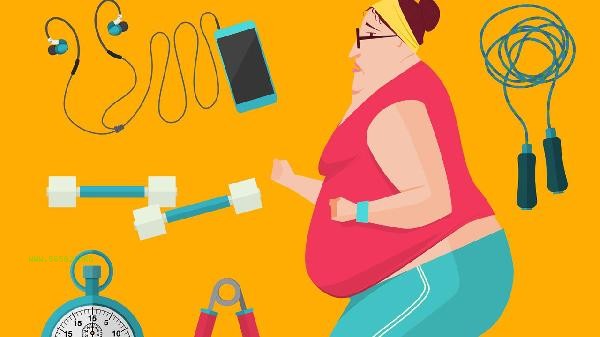Nausea and vomiting during weight loss may be a stress response of the body to dietary or exercise adjustments, commonly seen in excessive dieting, fasting exercise, or low carbohydrate diets. The main causes include blood sugar fluctuations, gastrointestinal dysfunction, electrolyte imbalance, excessive exercise intensity, and psychological stress. If accompanied by symptoms such as dizziness and fatigue, be alert to hypoglycemia or dehydration.

1. Blood sugar fluctuations
Sudden reduction in carbohydrate intake can lead to a rapid decrease in blood sugar levels, stimulating the vomiting center in the medulla oblongata. It is recommended to choose low glycemic index foods such as oats and whole wheat bread as a source of carbohydrates to avoid prolonged fasting. Serving of individual dishes is helpful to stabilize blood sugar, and a small amount of compound carbon water is added every 3-4 hours.
2. Gastrointestinal dysfunction
A high protein diet or a large amount of meal replacement powder may increase the burden on the gastrointestinal tract and cause acid reflux. You can try dispersing daily protein into each meal and avoid eating 3 hours before bedtime. Moderate supplementation of fermented foods containing probiotics, such as sugar free yogurt, can help improve the balance of gut microbiota.
3. Electrolyte imbalance
Strictly limiting salt intake or excessive sweating may lead to sodium and potassium loss. After exercise, you can drink diluted salt water or eat potassium rich foods such as bananas and spinach. Pay attention to the color of urine. If it turns dark yellow, it is necessary to replenish water in a timely manner, but the amount of water consumed per hour should not exceed 800 milliliters.

4. Excessive exercise intensity
High intensity interval training on an empty stomach can easily trigger vagal nerve excitation. It is recommended to consume a small amount of easily digestible carbohydrates, such as half a banana, one hour before exercise. When nausea occurs, immediately switch to low-intensity aerobic activities such as slow walking or soothing yoga to avoid excessive stress on the body.
5. Psychological stress
Excessive focus on weight numbers may trigger anxious somatic reactions. Try to control the weight loss rate at around 0.5 kilograms per week, and recording changes in body circumference is more meaningful than weighing. Mindfulness diet training and deep breathing exercises can alleviate the tension during eating. During weight loss, it is recommended to maintain at least 1500 milliliters of water per day and sleep for no less than 7 hours. If nausea symptoms persist for more than 3 days or are accompanied by vomiting blood, blurred consciousness, and other symptoms, immediate medical attention should be sought to investigate organic diseases such as gastritis and cholecystitis. Long term users of meal replacement products should undergo regular liver and kidney function tests to avoid nutritional deficiencies and metabolic disorders. Reasonable weight loss should focus on the combination of dietary balance and moderate exercise, as extreme methods may damage basal metabolic rate.










Comments (0)
Leave a Comment
No comments yet
Be the first to share your thoughts!